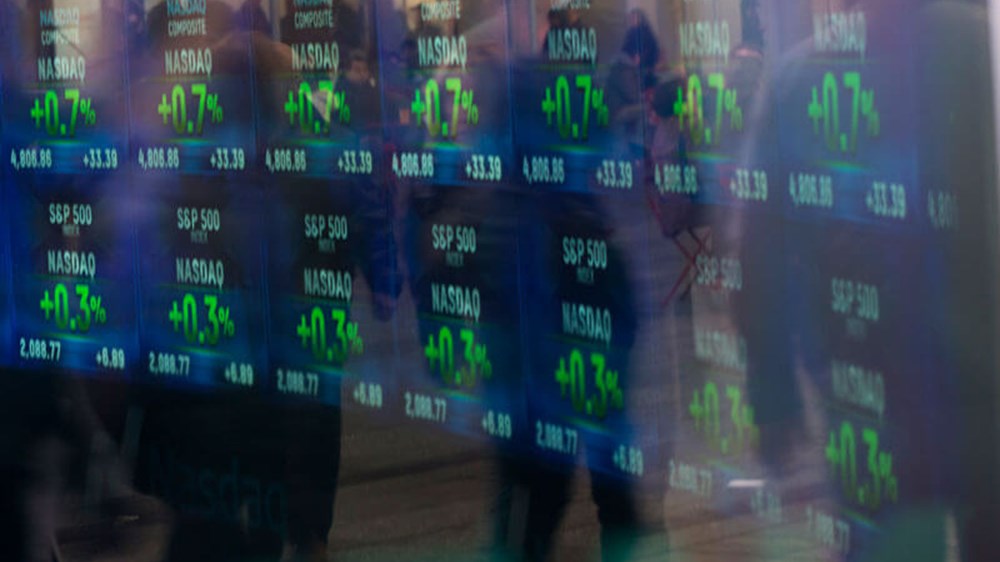If you’re currently investing or just following financial news, then you have almost surely heard of the FTSE 100 (or 'Footsie' as it's also known as for short).
But do you know what it means?
If you’re not familiar with it, here’s a very simple explanation to help even the most novice investors understand a little bit more about what the FTSE 100 is and how it works.
It’s got nothing to do with playing with feet under a table!
Despite its playful nickname, the Financial Times Stock Exchange 100 (FTSE 100) is an index which lists 100 companies based in the UK. As of the end of May 2023, this list included Tesco, Barclays, JD Sport, and BT.1
The companies included the FTSE 100 are often referred to as 'blue chip' and are the largest publicly traded companies listed in the UK.
The FTSE 100 is a market-weighted index, which basically means the companies listed contribute to the aggregate performance based on their size. Large companies will drive performance of the entire FTSE 100 index much more than a smaller one – meaning smaller companies have less of an impact on the overall performance of the FTSE 100.
Although the FTSE 100 is the UK’s leading stock market, it isn’t necessarily the best indicator of UK domestic growth or fortunes. Many of the large companies in the FTSE 100 are international groups that generate a high percentage of sales overseas.
There’s more than one FTSE
In addition to the FTSE 100, there’s the FTSE 250 which tracks the next largest 250 companies that are listed on the London Stock Exchange. This is, perhaps, a better indicator of the UK’s prosperity as medium-sized companies in the FTSE 250 usually generate less sales from global operations.
Combine the FTSE100 and FTSE 250 and you get the FTSE 350. Then there’s also the FTSE Small Cap, which includes over 280 companies that are smaller than those in the FTSE 100 & 250. Together they are known as the FTSE All-Share.
Plus, there's also the FTSE4Good Index which excludes companies and industries that are involved in harmful activities (like weapons, deforestation, adult entertainment and gambling), and includes ones with strong ethical standards.
The FTSE 100 and volatility
The term 'volatility' describes the size and speed in which fluctuations in occur in financial markets. And like any index, the FTSE 100 has had its fair share of highs and lows.
In terms of performance, between 1984 and 2022, the price return of the FTSE 100 was 645.2%, while the total return was 1514.92%. This equates to an annual price return of 5.4%, and a total return of 7.48% (and in case you were wondering, the difference between the two is that 'total returns' includes dividends that have been reinvested).2
And something to keep in mind is that this timeframe includes Black Monday in 1987, the 1995-2000 dot-com bubble, the 2008-09 financial crisis, and the more recent Covid-19 pandemic.
Data also shows that anyone who invested in the FTSE 100 for any 10-year period between 1986 and 2021 had an 89% chance of making a positive return.3
Why care about the FTSE 100?
Unless you deliberately choose to avoid the FTSE 100, you might already be invested in the index if you’ve joined a pension scheme or have opened an Investment Plan.
If this is the case, the way the FTSE 100 is doing could have some impact on the performance of your investments, especially if you’re heavily focusing on the UK index.
However, a to lower the influence of the FTSE 100 on the total value of your investments would be to spread your money across assets and markets. In other words, instead of favouring the FTSE 100, you could buy a large number of investments (e.g. shares, bonds, property, and commodities) and invest in different indices (e.g. the US-based S&P 500 and Japan’s Nikkei 225).
At Wealthify, we'll build you a fully diversified portfolio, investing in a number of funds that contain a collection of investments (such as shares, bonds and property), and track market indexes from around the world. Learn more about how we invest for our customers.
Past performance is not a reliable indicator of future results.
Please remember the value of your investments can go down as well as up, and you could get back less than invested.
Wealthify does not provide financial advice. Seek financial advice if you are unsure about investing.
References:
1: London Stock Exchange - FTSE 100 table
2: IG - What are the average returns of the FTSE 100?
3: Data from Bloomberg



